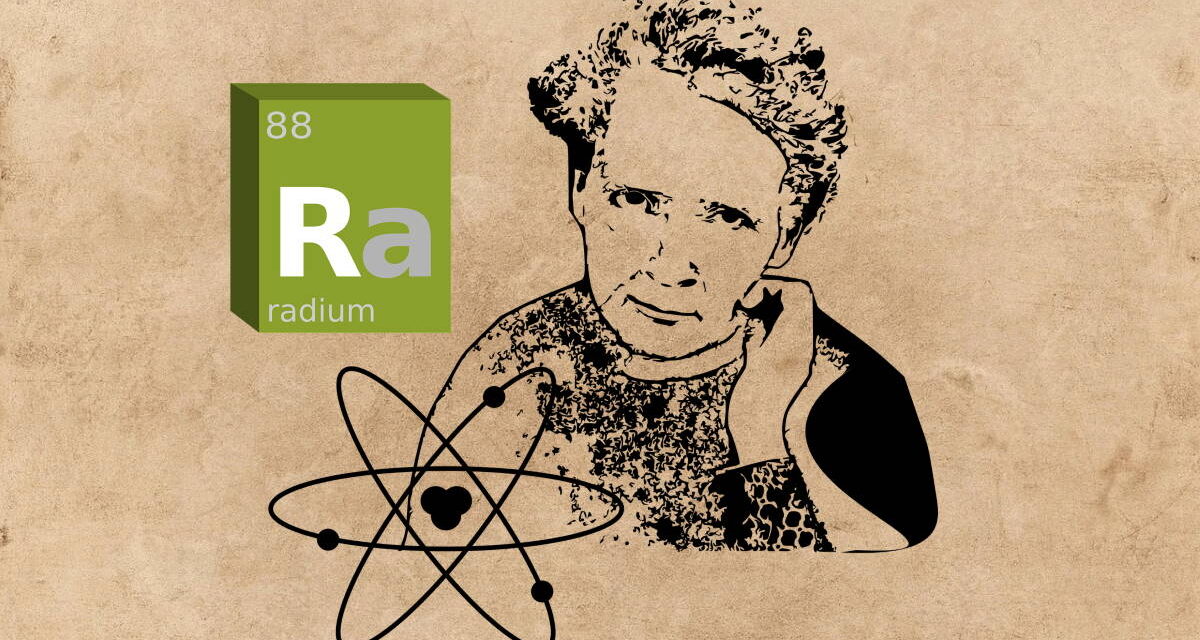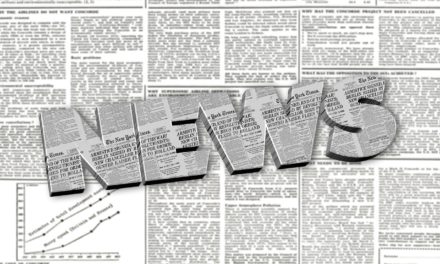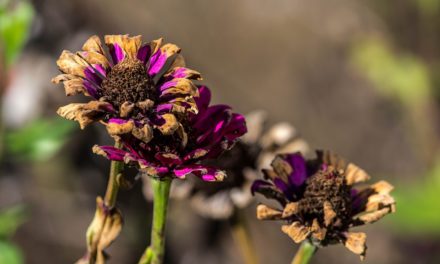Warming Up!
Chit-Chat
1. Have you ever participated in or visited a science exhibition?
Ans: Yes, I have participated in as well as visited science exhibitions at the Nehru Science Centre in Mumbai.
2. Did you observe/learn any new things there? What are those?
Ans: Yes, I learned several new things at the science exhibition. Some of these were:
- I learned about gravity and why the planets such as earth revolve around the sun and not just crash into it.
- I learned about the flow of energy.
- I learned about transportation and its mechanisms.
- I learned about several laws of physics that govern everything around us.
3. Scientists have to work very hard and make many sacrifices for years, to achieve success in their experiments. Why?
Ans: The job of a scientists needs a lot of patience and perseverance. This is because when you work with new or unknown substances, first you need to spend a lot of time just understanding what you have in front of you.
In order to fully understand and comprehend anything, scientists have to carefully study the subject and conduct various experiments. Each of these experiments can take days, months or even years to setup and accomplish. Also at the end of the experiment, scientists may realize the outcome is not what they had hoped for.
Hence a lot of trial and error is involved in each of the experiments. It is only after years of conducting highly specialized experiments or tests that they can start to form a conclusion about the subject.
It is possible for a scientist to go through various experiments and still not have the desired results. During this time, the scientist has to gather all that is required to setup a successful experiment and sacrifice a lot of their personal time as well as money.
4. What is the difference between a discovery and an invention?
Ans: The difference between a discovery and an invention is as follows:
A discovery is when someone finds something new that had not been found before. The most important thing to note is that whatever has been found, already existed in this world or universe before. It is just that no one had known about it until the moment it was discovered.
For example, discovery of new planets, star systems, minerals, elements, species etc.
An invention is when someone creates something completely new that did not exist in its current form before. This is something entirely new and is not something that you can simply find in nature.
For example, invention of the light bulb, motor vehicle, airplanes etc.
1. Discuss in pairs/groups about the precautions one has to take while working in a science laboratory. Write them in the form of Dos and Don’ts.
Dos
- Handle test tubes and other glass apparatus with care.
- Always wear gloves, glasses and other safety equipment.
- Keep a safe distance between you and the subject when conducting experiments.
- Mark each chemical or ingredient properly so others know what they are handling.
Don’ts
- Don’t touch chemicals with bare hands.
- Don’t mix unknown chemicals.
- Don’t leave things unattended during any experiment.
- Don’t touch your face or other body parts when handling chemicals.
2. Study the underlined Predicate in each of the sentences below and note the difference.
1. I met Debbie. (verb (met) + Noun (Debbie)
We study Grammar. (verb (study) + Noun (Grammar)
(The object answers WHAT ? or WHO ? when asked to the verb.)
2. He became tired. (verb (became) + Complement (tired)
They are hungry. (verb (are) + complement (hungry)
The verbs (became/are) incomplete without the words that follow (tired/hungry.) So ‘tired’ and ‘hungry’ are Complements of the verbs ‘became’ and ‘are’.)
3. She spoke softly.
They live here.
He turned early.
(The verbs in the Predicates are followed by Adverbials since they indicate How ?/Where/When the action in the verb takes place.)
Now say whether the Predicate in the following sentences contain Object or Complement or Adverbial after the verb.
(a) He looked upwards.
Ans: Adverbial
(b) My brother is injured.
Ans: Adverbial
(c) We scored a goal.
Ans: Object
(d) We beat the opponents.
Ans: Object
(e) She answered perfectly.
Ans: Adverbial
(f) The guests arrived early.
Ans: Adverbial
(g) I shall be happy.
Ans: Complement
(h) You wrote the address.
Ans: Object
From the Chapter Pages
What qualities do great achievers possess?
Ans: The qualities great achievers possess are courage, commitment, dedication and singleness of purpose in their effort to attain what seemed to be unattainable.
They also possess a drive to uncover the truth and mystery of the universe with an indomitable spirit.
What information do you get about Marie’s early life?
Ans: Marie was born as Maria Sklodowska in Warsaw, Poland on November, 7 1867. She came from a poor family and had a dream to study science in Paris.
Marie had taken up a job as a governess and with the little money she saved, she was able to go to Sorbonne, the University of Paris, to study science.
However, even at the university, due to lack of financial means, she had to experience poverty and hunger.
What are the signs of poverty suffered by the young couple?
Ans: The young couple had taken a flat in Paris with scarcely any furniture in it except their books, a lamp, a white wooden table and two chairs.
This was a sign of poverty suffered by the couple.
Why were the two new substances named Polonium and Radium?
Ans: Firstly Polonium was named in honour of Marie’s country, Poland. Secondly, Radium was named due to the fact that it was the most powerful of the radio-active elements.
What proves Marie’s will power?
Ans: Marie’s will power can be proven by the fact that she resolutely refused to give up her struggle in pursuit of understanding radium even though she was faced with utter penury, not buying costly food and warm clothes for the extremely cold Parisian winter.
Often she could not sleep during the cold nights due to lack of warmth. Overwork seriously affected Madame Curie’s health. She was even forced to leave the laboratory often to take a much needed rest. Even with all of these things affecting her life, she did not give up on her scientific efforts.
Which gift did she receive from the emperor of Austria? Why was it the most precious for them?
Ans: Marie Curie received the gift of a ton of pitchblende from the emperor of Austria.
This was the most precious gift for the couple as they could not afford to purchase any pitchblende themselves due to poverty. Pitchblende was extremely expensive and the couple had to sacrifice all luxuries of life in pursuit of acquiring pitchblende for their research.
Describe how the Curies first sighted Radium? What was its colour?
Ans: The Curies first sighted radium in September 1902. One night, just as they were about to go to bed they went to the laboratory to have another look at the hundreds of small bowls into which they had poured filtered pitchblende. In the dark laboratory as they moved cautiously forward there were all around them rays of soft, bluish purple light coming from the small, glass covered bowls. This is how the Curies had first discovered Radium.
The colour of Radium was bluish purple.
How is radium used in the medical field?
Ans: The benefits of radium in the world of medicine are incalculable. It has been used with great effect in the treatment of cancer. The bacteria of such diseases as typhus, cholera and anthrax can also be killed by radium.
Discuss in groups: ‘Courage is undefeatable.’
Ans: The phrase ‘courage is undefeatable’ comes from the fact that if you go ahead in life with courage and an attitude to never give up, then no matter what, you can achieve your dreams.
Without courage, most people will give up on their dreams in the face of either danger or lack of initial success.
It is only with courage that we can fuel our determination to keeping moving forward even if we are faced with incredible difficulties.
That is exactly how Marie Curie was able to discover Radium and achieve so much in the world of Science. Thanks to her incredible courage and determination, she could withstand utter poverty, harsh conditions and years of toiling in a small shed to one day become one of the most respected women in the world.
How did Pierre meet with an early death?
Ans: Pierre met with an early death in 1906 when he was knocked down and killed by a horse-drawn wagon.
What makes Marie Curie an exceptional scientist?
Ans: There are a number of things that make Marie Curie an exceptional scientist. First, her incredible courage and determination helped her continue with her scientific research for years even when faced with utter poverty and harsh conditions.
Even after she discovered Radium, she could have patented it and made a lot of money. Instead she chose not to as she believed in working for science and that her discoveries such as Radium belonged to the people and not her.
She won the Nobel prize twice in her lifetime, once for Physics and another time for Chemistry.
English Workshop
1. Write in one sentence each, why the following years were landmarks in the lives of Pierre and Marie Curie.
1895 – Pierre and Marie Curie got married in the year 1895.
1902 – 1902 was when Pierre and Marie Curie first discovered Radium.
1903 – The Curies were awarded the Nobel Prize for Physics in 1903.
1906 – In 1906, Pierre was knocked down and killed by a horse-drawn wagon.
1911 – Marie was awarded the Nobel Prize for the second time for Chemistry in 1911.
2. Complete the web diagram with the qualities of Madame Curie.
Qualities of Madame Curie
- Determination
- Courage
- Dedication
- Strength of Character
- Endurance
3. Name the following.
(a) Two discoverers of new lands
- Coumbus
- Vasco de Gama
(b) Two conquerers of the peak of Mt. Everest
- Hilary
- Tenzing
(c) Original name of Madame Curie
Maria Sklodowska
(d) Her place of birth
Warsaw, Poland
(e) Subjects Marie majored in, at the University of Paris
Physics and Mathematics
(f) Nationality of her husband Pierre
French (France)
(g) Scientist who discovered the properties of uranium
Henri Becquerel
(h) Two radio – active elements discovered by Curies
Polonium and Radium
4. Read the text carefully and match the incidents occured in Madam Curie’s life given in table A with the years in table B.
Direct answers given below:
- Henri Becquerel discovered that uranium had the property where radio – active elements can give off rays which can penetrate substances that are opaque to light. – 1896
- Maria Sklodowska was born in Warsaw, Poland. – 1867
- Marie was awarded Nobel Prize. – 1911
- Curie couple discovered radium. – 1902
- Marie passed away. – 1934
5. Think and answer in your own words.
(a) What common characteristics did Marie and Pierre share, as students?
Ans: The common characteristics shared by Marie and Pierre as students were that they were both brilliant but poor.
(b) Which of the two scientists was greater than the other? Say why?
Ans: Although the Curies worked together and had similar characteristics, many consider Marie Curie as the greater scientist as she was the one who discovered Radium and also won two Nobel Prizes, for Physics and Chemistry.
(c) Why was the gift of a ton pitchblende, a great stroke of luck, to the Curies?
Ans: Pitchblende was an extremely expensive substance. The Curies had to sacrifice all luxuries in life just to acquire a bit of it. They simply could not afford to purchase more pitchblende and this could have halted their research that led to the discovery of Polonium and Radium. That is why, when the emperor of Austria gifted the Curies a ton of pitchblende, it was a great stroke of luck for them.
(d) Besides the uses of radium and polonium mentioned in the text, in what other way, do you think, it is used in the field of medicine?
Ans: Besides what is already mentioned in the text, radium and polonium is also used for therapies related to diabetes, various types of cancer treatments, genetic mutation therapy etc. Polonium is used in devices that can be used for medical treatment and research.
(e) What proves that Marrie Curie was a true lover of humanity and not a wealth?
Ans: The fact that Marie Curie chose not to patent the discovery of Radium and Polonium as she felt the science and the substances belonged to the people and not to herself alone, shows she was a true lover of humanity and not of wealth.
In fact Marie Curie lived in poverty and had a modest life even after all her achievements as she chose not to work for money but for the benefit of people through her research.
6. Find words/phrases from the text that are synonyms of the word ‘brave’.
- Courage
- Determination
- Singleness of purpose
- Indomitably
- Resolutely
- Strength of mind
- To attain what seemed to be unattainable
7. Read and understand the following words. Find out/search for proverbs / thoughts / quotes / slogans that are related to each of them.
(a) Courage
1) “Courage is resistance to fear, mastery of fear, not absence of fear.” – Mark Twain
2) When you have no choice, mobilize the spirit of courage. ~ Hebrew Proverb
(b) Strength of character
1) “Strength of character means the ability to overcome resentment against others, to hide hurt feelings, and to forgive quickly.” – Lawrence G. Lovasik
2) “Do not pray for an easy life, pray for the strength to endure a difficult one” – Bruce Lee
(c) Determination
1) “The path to success is to take massive, determined action.” – Tony Robbins
2) “To him who is determined it remains only to act.” – Italian Proverb
(d) Hard-work
1) “The fruit of your own hard work is the sweetest.” – Deepika Padukone
2) “Success isn’t always about greatness. It’s about consistency. Consistent hard work leads to success. Greatness will come.” – Dwayne Johnson
8. Match the branches of Science with what fields they study:
Direct answers given below
(a) Ecology – (iv) Study of living organisms and environment
(b) Geology – (vii) Study of solid earth and rocks
(c) Meteorology – (i) Study of Atmosphere
(d) Anatomy – (vi) Study of structure and functions of the body
(e) Botany – (ii) Study of Plant – life
(f) Psychology – (v) Study of human mind and emotions
(g) Cosmology – (iii) Study of the Universe
9. Imagine that your school needs some Scientific equipments, apparatus and formulae charts for the laboratory. Being the in – charge of Science Committee, write a letter to the Headmaster of your school suggesting him some Scientific equipments and apparatus required for Standard X Science practicals. Take help of the information given below to complete your letter.
Answer:
Sanjay Sharma
In – charge of Science Committee,
New English High School, Akola
1 January, 2018
To
The Headmaster,
New English High School, Akola
Sub: Request for Scientific equipments and apparatus required for Standard X Science practicals
Sir/Madam,
I am writing to you in the capacity of being in-charge of science committee of our respected school. As you are aware, there are a number of scientific experiments that have been included in standard X syllabus this year.
However, upon inspection, the students found that our science lab does not have some of the required equipments and apparatus that is necessary to conduct these experiments. Therefore I request you to kindly arrange for the following at the earliest:
- Test Tubes of length 10 cms and 20 cms.
- Bunsen Burner
- Apparatus to handle chemical substances such as Sulphur
- Safety goggles
- Dropper
- Temperature controller and measurement equipment
- Centrifuges
We would need all of the above in Grade A quality and would also require at least 40 each so that the students can conduct experiments together.
I am sure you will agree that having these equipments in our school science lab will benefit the students in their final exam. They will get the much needed practice before practical exams are conducted by the state board.
We would be highly obliged and grateful if you could arrange for the same at the earliest, before the end of the first term this year.
Thank you,
Yours obediently,
Sanjay Sharma
10. ‘There is no short – cut to success’.
Expand this maxim with a suitable introduction, body with examples and conclusion. Write it in your notebook in about 20 lines.
Answer:
Success is something we all crave. To be successful in life is the ultimate goal for most of us. However, it is ironic that although success is what we want most in life, not many are ready to work for it.
A lot of us want to take the short route to success. They want to work smart but not hard. It would seem our generation is also losing patience as no one is ready to wait for success to come in life. They all want it right now.
We need to understand that success does not come overnight. There is no short-cut and you will have to run the whole course if you want to achieve your goals. Take the example of a ladder. You cannot directly reach the top step. You can jump, but then you will most likely fall. You have to always go up one step at a time.
Life is similar. There is no way to reach the top without climbing the steps needed to go ahead. Trying to take a short-cut may lead to some temporary gains but ultimately you will fall and end up losing even more time than usual.
One crucial reason why we must not try taking short-cuts to success is the experience factor. Typically, as we work for our goals, we go through various trials and tribulations. We learn from these experiences and become a much stronger individual. We learn what must be done or how to react to certain situations. Hard work and experience teach us these lessons. With short-cuts, you will lose out on all of these important life lessons.
Short-cuts may seem like an easier route. However, it is just an illusion and will only result in temporary or limited success. Ultimate success can be achieved only through genuine hard work, determination and perseverance.
11. Project :
The life and work and inventions of Marie Curie are given in detail in the text. Go to your library or search on internet at least five famous scientists who have given great inventions to the world and write about them or prepare a chart showing the information about them.
Answer:
1) Isaac Newton
Issac Newton is seen as one of the most brilliant scientific minds of all times. He was born on 4th January 1643 in United Kingdom and attended the Trinity College from 1661 to 1668.
Some of Isaac Newton’s inventions or discoveries were:
- The Calculus
- Theory of Universal Gravity
- Formulated the Laws of Motion
2) Benjamin Franklin
Benjamin Franklin was not just a scientist but also one of the founding fathers of the United States of America. He was born on 17th January 1706 in USA.
Some of Benjamin Franklin’s inventions or discoveries were:
- Lightning rod
- Bifocals
- Connection between lightning and electricity
3) Albert Einstein
Albert Einstein was a scientist and theoretical physicist born in Germany on the date 14th March 1879.
Some of Albert Einstein’s inventions or discoveries were:
- Theory of Relativity
- Theory of Quantum Mechanics
- Law of the photoelectric effect
4) Galileo Galilei
Galileo Galilei was known for being an astronomer and physicist. He was born on 15th February 1564 in Italy.
Some of Galileo Galilei’s inventions or discoveries were:
- Celatone
- Galileo’s proportional compass
- Discovered the Rings of Saturn
- Discovered four moons of Jupiter
5) Thomas Edison
Thomas Edison, often described as America’s greatest inventor was born on 11th February 1847 in USA.
Some of Thomas Edison’s inventions or discoveries were:
- Incandescent light bulb
- The phonograph
- Motion picture camera
Language Study
1. Pick out the Prefixes and Suffixes from the following words and find the root word :
1)
Word: unattainable
Prefix: un
Suffix: able
Root Word: attain
2)
Word: indomitable
Prefix: in
Suffix: –
Root Word: domitable
3)
Word: disheartening
Prefix: dis
Suffix: ing
Root Word: hearten
4)
Word: incalculable
Prefix: in
Suffix: able
Root Word: calculate
5)
Word: disconsolate
Prefix: dis
Suffix: ate
Root Word: console
6)
Word: ensuring
Prefix: en
Suffix: ing
Root Word: sure
2. (A) Say whether the Predicates in the sentences below contain Objects/ Complements/Adverbials.
(a) Madame Curie discovered radium.
Ans: Object
(b) Pierre was knocked down.
Ans: Adverbial
(c) Pitchblende was expensive.
Ans: Complement
(d) The couple took a flat.
Ans: Object
(e) They moved cautiously, success came finally.
Ans: Adverbial
(B) Pick out the Conjunctions in the following sentences and say whether they are Subordinators or Co-ordinators.
(a) There are women who show extreme courage.
Ans: who – subordinator
(b) Pitchblende was an extremely expensive substance, so they could not afford to buy.
Ans: so – co-ordinator
(c) After her daily household work Marie settled down to study.
Ans: after – subordinator
(d) Marie wanted to study in Paris but her father could not afford it.
Ans: but – co-ordinator
(e) History is full of chapters that tell of extraordinary people!
Ans: that – subordinator





